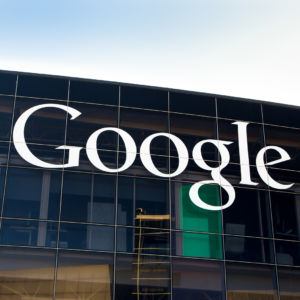With the walls closing in as investigators at the Justice Department, the FTC and in Congress scrutinize its business practices and culture, Google is looking for help in a pretty shocking place — from the same creative communities the Silicon Valley giant has exploited and tormented for years.
During this year’s Oscars, I saw an ad promoting Google products that used a scene from the acclaimed independent film “Lady Bird,” one of a series of ads using clips from famous films to promote the Google Assistant. With its own popularity plummeting, the company continues to wrap itself in ads leveraging the familiarity associated with films like “Psycho,” “Scream,” “Deadpool” and “2001: A Space Odyssey.” Their Christmas spots also included memorable scenes from “Home Alone” and now they are running ads featuring songs by the Beatles.
While I admired the sheer imagination and craft behind all of these commercials, there is also a sad irony: some of our best and most iconic content being used by one of the world’s most powerful companies whose platform facilitates global piracy of that same content! In fact, every single piece of content featured in their spots can be found for free through Google search.
And the harm from this lack of accountability is real. For example, “Lady Bird” grossed almost $79 million in theaters worldwide by selling more than 11 million tickets. But, it was also illegally downloaded more than 16 million times. That means that the pirate viewing numbers were 50 percent higher than legal ticket sales.
As a television and movie producer, I am privileged to work with people whose creativity powerfully affects our culture and the world. Even after 27 years, I am always amazed at the high level of innovation that comes from their mind, spirit and work ethic.
I have seen how copyright infringement deeply harms my colleagues. From residuals to pension funds for the hundreds or thousands of people who work on a single movie or television show, piracy affects the livelihoods of those who make the content we love.
Earlier this year, I visited Washington to discuss this issue — teaming up with the creative rights organization CreativeFuture to meet with leaders on Capitol Hill about the need to strengthen copyright and more effectively fight global digital piracy.
A key part of our conversation was about how our current legislative framework allows Google, Facebook and Twitter to absolve themselves from their responsibility for a wide range of social and economic problems facilitated via their platforms, from hate speech to fake news, from privacy to digital piracy. After all, Google openly acknowledges in its 2018 report that it receives close to 900 million takedown notices per year for copyright-infringing material.
So, how can a company that so obviously facilitates piracy also produce ads that show such reverence for creativity?
Google knows that this problem is quickly becoming an epidemic for an industry that is truly a pillar of the American economy. Late last year, the International Intellectual Property Alliance released its biennial report that explains how the American economy benefits from copyright. We learned that in 2017 these industries employed 5.7 million workers; accounted for higher export totals than agriculture, aerospace and pharmaceuticals; and contributed $1.3 trillion to the U.S. economy — 6.85 percent of the total.
Copyright protection is meant to enable my colleagues and me to make content. Without proper enforcement, the entire economy of making great movies and television will collapse.
Google knows its platform facilitates piracy and thereby threatens legitimate businesses and jobs nationwide. And it already has technology that filters illegal content (i.e., child pornography)— it has just chosen to not use it as effectively for copyright infringement.
So, which is it, Google? On the one hand, these advertisements suggest you do care about creativity and creatives. Maybe you do understand that creativity breeds innovation and, in turn, innovation inspires creativity. But on the other, you are also facilitating the theft of these very same works — and hundreds of thousands of others. Are you for creativity or against it?
I hope it’s the former. I invite you to join us — let’s come together. Commit your brilliant minds to help reduce the misuse of your services by pirates.

